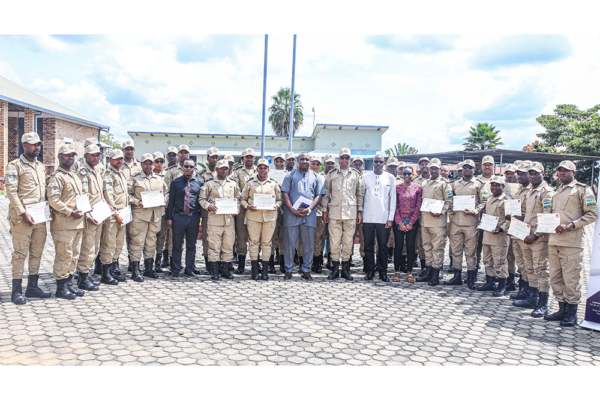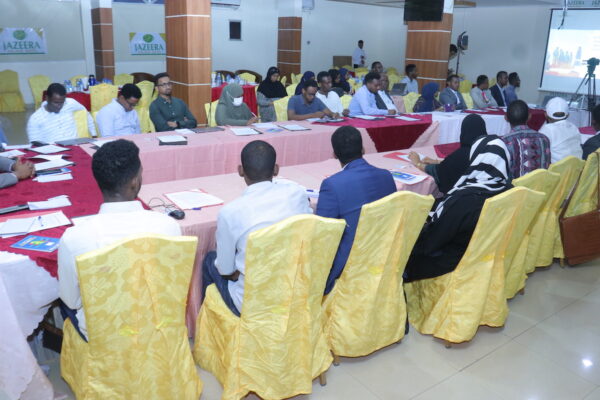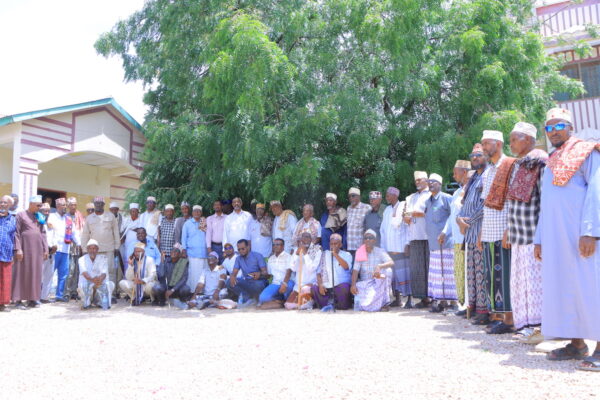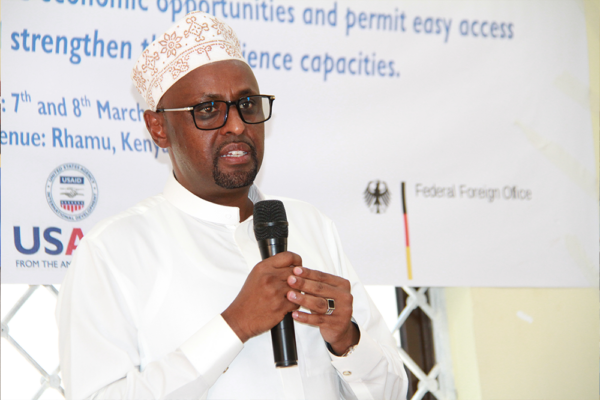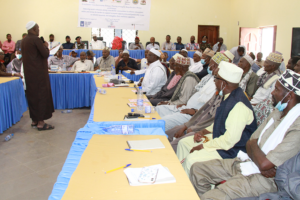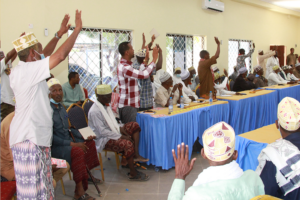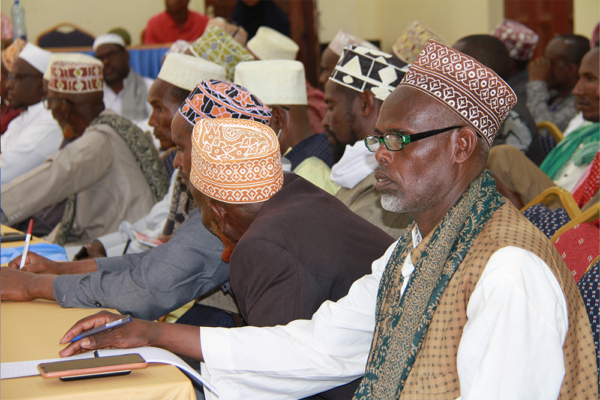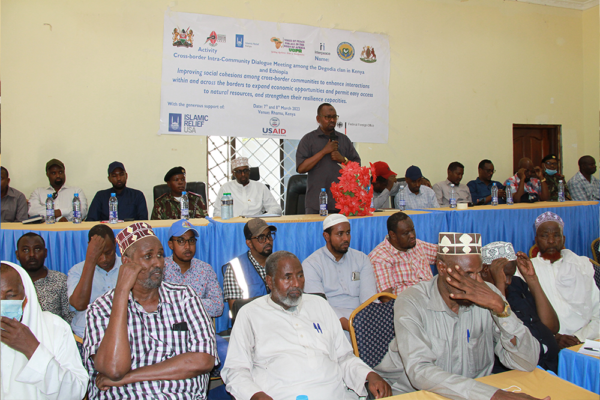Psychological rehabilitation of prisoners to strengthen social cohesion and reconciliation in Rwanda
The 1994 Genocide against the Tutsi in Rwanda had significant consequences for mental health, social cohesion, and socioeconomic development. By 1996, approximately 130,000 individuals suspected of participating in the genocide had been arrested and detained. One of the major consequences of the genocide has been the severe mental health problems experienced by the survivors due to the horrendous atrocities committed against them and their loved ones. Recent studies have concluded that even genocide convicts experience various psychological distress due to the atrocities they committed, and their incarceration, making their effective reintegration into their families and communities after release quite complex.
“I was deeply traumatised due to my difficult life in prison and held on too much anger against my family because they didn’t care about me as I would have wished,” said Edi (pseudonym), a Genocide convict detained in the Bugesera correctional facility located in the Eastern Province of Rwanda.
Edi’s case is not isolated, as his colleague Alpan (pseudonym) also experienced deep depression and social isolation for over 27 years. “I felt traumatised and anxious every time I thought about what I did during the genocide and how I disappointed my family and community. I didn’t want to talk to anyone here and had lost interest in everything since I thought my life had no meaning,” narrates Alpan.
A significant number of those convicted of genocide crimes have already been released in recent years. According to Interpeace’s research studies, released prisoners are likely to cause tensions and anxiety among families of genocide survivors and the community in general, potentially leading to recidivism. Failure to ensure their effective psychological rehabilitation constitutes a major hindrance to unity and reconciliation gains 29 years after the genocide.
Since 2020, Interpeace and its local partners, Dignity in Detention Organisation, Haguruka, and Prison Fellowship Rwanda, with financial support from the European Union and the Government of Sweden, have been implementing a holistic peacebuilding programme that simultaneously addresses mental health, promotes social cohesion, and strengthens economic livelihoods, with a particular focus on the psychological rehabilitation and reintegration of prisoners.
Impact of Sociotherapy healing spaces in prisons
Interpeace, together with its local partners, created Sociotherapy healing spaces in five prisons, namely Bugesera, Nyamagabe, Musanze, Nyagatare and Ngoma to provide inmates about to be released with group-based psycho-social support services.
After a rigorous screening process to assess their level of distress and needs, detainees nearing release are allocated into groups of between 12 and 15 members each. Guided by fellow detainees who had been well-trained, they engage in healing dialogues which last for 15 weeks. Conducted in a safe space and conducive environment, these dialogues simulate mutual healing, peace of mind and cohesion.
“Sociotherapy healing spaces enabled me to realise that being in jail is not the end of my life. Before, I was desperate and thought my life had no value. But now, I have regained a new sense of brighter future after my release, which is due in less than two years,” said Alpan, who added, “They have helped me to reconnect with the one I offended. We often talk on phone, and I feel ready to ask her for forgiveness after my release.”
Like his fellow detainees, Sociotherapy healing spaces enabled Edi not only to cope with his distresses and reconnect with his family but also to live in peace and harmony with other detainees. In June 2023, the first group of 182 inmates graduated from healing spaces in four prisons. Previously, more than 50 inmates graduated during a pilot phase of the programme implemented in Bugesera District, eastern Rwanda from 2020 to 2022. According to programme’s target, three groups graduate every year. Those who graduate from healing spaces are facilitated in acquiring hands-on skills that make them better equipped to create livelihood opportunities and earn a living after their release.
Training of Correctional Officers on the implementation of the curriculum
Interpeace worked with Rwanda Correctional Service (RCS) to develop a standardised curriculum for prisoner rehabilitation and reintegration, which was adopted in July 2022. The curriculum serves as a guide to harmonise the process across all correctional facilities and is being implemented by trained correctional officers.
From 5-11 June, RCS, with the support of Interpeace organised a Training of Trainers for 45 Correctional Officers on the implementation of the curriculum. The participants were selected from correctional facilities from across the country. Those who complete the training will also train their in-service colleagues. Superintendent of Prisons Alain Gilbert Mbarushimana, one of the participants commended the training, stating that it has strengthened their capacity to better support inmates.
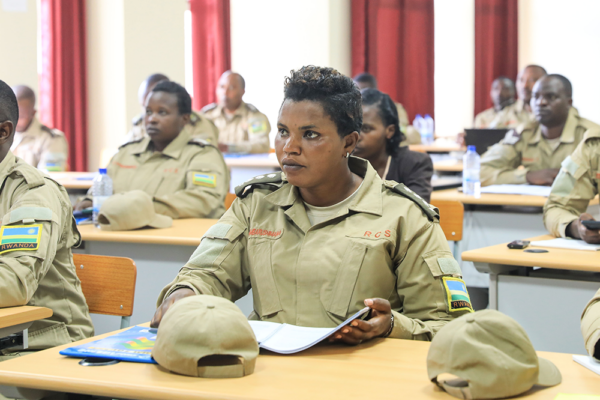
“During this training we learnt various innovative approaches to prisoner rehabilitation. I feel confident that this will enable us to effectively support inmates to become better individuals. We feel fully equipped to share the knowledge and skills with our colleagues across all correctional facilities,” said Superintendent Mbarushurishama.
During the closing ceremony of the training, Commissioner of Prisons Jean Bosco Kabanda, Ethics and Doctrine Division Manager at RCS, highlighted the importance of the training in enabling the institution to fulfill its mandate of rehabilitating inmates to become better citizens.
He also revealed that the curriculum will be integrated into RCS’s Training School courses offered to newly recruited staff and refresher courses for in-service officers.
